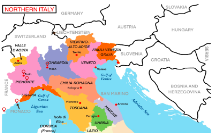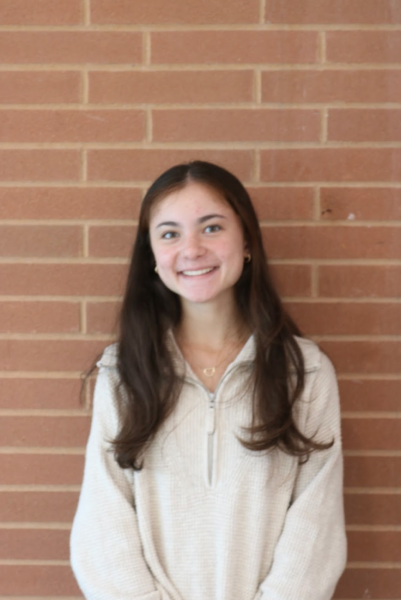With only 30 days left, group leader and trip organizer – chemistry teacher Dominick Messina – scrambled to put together an entirely new agenda to replace one that was a year in the making. The original plan was to visit Ecuador and the Galapagos; however, Messina had to change directions after a national emergency was declared in Ecuador on Jan. 8, just a month before the trip.
In the interest of student safety, Messina sprung into action, speaking with Assistant Superintendent Anthony Buono and Superintendent Thomas Scarice. After concluding that Ecuador was no longer an option, they decided to pivot. Despite the stress of having to plan a last minute new trip, Messina put together a plan that would do right by those who had already paid to go to Ecuador: a trip to Northern Italy.
“It was something that interested me and I thought I needed to choose something that was both interesting and appealing,” Messina said. “I think overall, it worked out better than I imagined. But it was stressful for a while.”
After he settled on this more agriculturally focused trip, Messina made some customizations so that it wasn’t just about farming and included opportunities for more fun activities like hiking and having free time to explore.
“At first I was a little bit skeptical of the whole trip because it was a big change from going to Ecuador to this new trip that no one had ever done before,” Layla Retcho ’25 said. “But it was actually pretty amazing learning all about agriculture and how foods are made there.”
From Italy to Monaco, Staples STEM students and teachers ventured through the cities of Turin, Cuneo and more over February break. During this excursion, the group could be found eating all kinds of delicious food, wandering the streets of Saluzzo, making cheese and pasta, walking along the Mediterranean sea and even singing.
“Together we embarked on a shared journey of discovery by being open and responsive to different perspectives, collaborating with each other in diverse environments and making informed decisions to solve complex problems,” biology teacher Heather Wirkus said. “This trip is now a core memory for me.”
Following their arrival in Milan, they spent two days in the beautiful city, Turin. Next up, they visited the city Cuneo for four days, where they did activities like making cheese and pasta and touring vineyards.
“It has rolling hills that look very similar to the Tuscany region, like where Florence, Italy is. But it has the backdrop of the Alps, these towering snow capped mountains. It was really, really pretty,” Messina said.
A highlight from their days in this area was touring a dairy farm, where they got to see where cheese is stored and aged and learned about the sustainability of the cheese making process.
“Two students got to make a wheel of cheese,” Messina said. “And in two years, I believe it’s getting mailed here. So we’ll have our own giant wheel of cheese, which is pretty cool.”
Some other highlights from Cuneo were visiting a perfume factory and going to a fruit processing plant, where they learned how apples and other fruits are processed organically, met farmers and (obviously) ate tons of apples.
“My favorite part was going to the apple processing factory because there’s so much going on that you don’t even think about when you’re eating an apple,” Retcho said. “It’s crazy how much work goes into one tiny apple and it was really interesting to see the inner workings.”
For the last two days, they journeyed to their final destinations, France and Monaco. The group had four hours to simply explore. Some went to see the Monaco aquarium while others went to see monuments like the Monte Carlo. The trip concluded with a three mile scenic walk along the coast.
“It was exhausting but also a super cool experience alongside a lot of great people,” Ella Toben ’24 said.
Although no official plans have been made, Messina will try again for the Galapagos trip in the future and encourages students to participate in such trips.
“I would encourage more students to go on trips like these to take these opportunities. You’re only in high school once and the social interactions you make and the learning that you do in other countries and settings is not something that can be replicated in the classroom,” Messina said. “If you have the opportunity, if you have the chance and the means to do it, you should jump at it.”















































